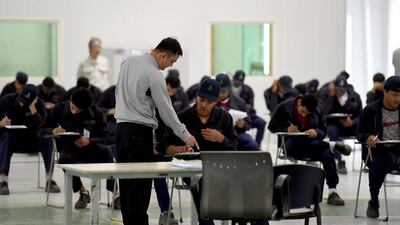The road to change is never easy. Though Saudi Arabia has hard work ahead, it has embarked on new initiatives and continues to widen the scope of existing plans to transform the kingdom's economy away from its energy reliance towards a more diversified economy that includes a mix of industries, a manufacturing base, an ecosystem that encourages entrepreneurship and innovation among its emerging youth.
The kingdom may net 80 billion Saudi riyals (Dh68.36bn)next year from various forms of taxation that it plans to levy, including a GCC-wide 5 per cent value added tax, an excise levy on tobacco and energy drinks, and a tax on luxury goods, according to Bank of America Merrill Lynch.
At the same time, Saudi Arabia announced that it plans to privatise its airports in order to lessen the government's exposure to activities that can be more efficiently run by the private sector. It will also help shift jobs from the public sector to the more competitive free market.
Saudi Arabian airports are key to receiving millions of pilgrims that visit Islam's holiest sites. The kingdom would like to position itself as a transport hub and expanding its facilities is a welcome move.
Saudi Arabia's ambitious plan to sell off a 5 per cent stake in Saudi Aramco, the world's largest oil producing company, will be a litmus test for the implementation of other reform and privatisation initiatives.
The stakes are high for the country, given the oil supply glut and collapse of crude prices over the past three years. The government will need to be resolute in the implementation of Crown Prince Mohammad bin Salman’s vision. That commitment should not waver even though oil prices have rebounded somewhat.
The Institute of International Finance said the country's economy is forecast to contract 0.4 per cent in 2017, before advancing 2 per cent in 2018. It also pointed to an increasing unemployment rate that can benefit from a strong recovery in non-oil growth.
The challenge for Saudi Arabia is to ensure that the non-oil economy expands at sustainable levels to help create jobs for graduates and keep up with the pace of a fast-growing population.
___________________
Read more:
Saudi Arabia to transfer ownership of airports to sovereign wealth fund ahead of privatization
Saudi Arabia can earn 80bn riyals in non-oil income
___________________

